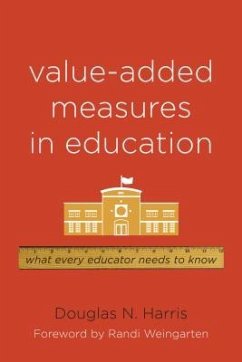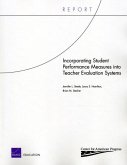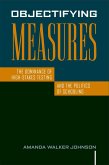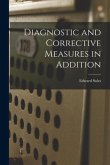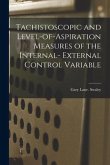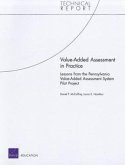In Value-Added Measures in Education, economist and education researcher Douglas N. Harris takes on one of the most hotly debated topics in education. Drawing on his extensive work with schools and districts, he sets out to help educators and policy makers understand this innovative approach to assessment. Written in straightforward language and illustrated with actual student achievement data, this essential volume shows how value-added measurement can help schools make better use of their data and discusses the strengths and limitations of this approach. "Public debate rages over the complicated issues of high-stakes testing, school accountability, and merit pay. In Value-Added Measures in Education , Doug Harris offers a detailed, reasoned, and accessible explanation of what standardized test scores can truly measure and how we can design educational accountability systems that improve teaching and learning. A much-needed voice in this rancorous conversation!" -- Daniel A. Domenech, executive director, American Association of School Administrators "Value-Added Measures in Education offers an important paradigm shift in our understanding of how federally mandated test data should be used. Currently test data is used to compare different cohorts of students to one another. Harris shows that we will be able to meet students' needs better if we place our focus on individual students' learning year to year." -- Christine A. Erickson, elementary teacher, Stoughton Area School District, Stoughton, Wisconsin "Doug Harris's book provides a clear explanation of value-added models and their potential value in improving education for the nation's children. While neither advocates nor critics of value-added models will find that the book totally supports their position, members of both camps will learn a great deal from it. Value-Added Measures in Education provides thoughtful, constructive advice about a host of practical issues that confront educators who implement this approach to accountability. The recommendations that conclude the book reflect the best available research knowledge and, most important, are sensible and actionable." -- Richard J. Murnane, Thompson Professor, Harvard Graduate School of Education "Value-added measurement is at the heart of today's efforts to reform accountability, teacher evaluation, and teacher pay. Yet those responsible for these systems are often unsure of the practical challenges or potential pitfalls. Doug Harris, one of the nation's leading authorities on value-added, has rendered a signal service in penning this accessible, practical 'user's manual.' Value-Added Measures in Education is essential reading for district leaders, policy makers, reformers, and educators." -- Frederick M. Hess, director of education policy studies, American Enterprise Institute Douglas N. Harris is associate professor of educational policy and public affairs at the University of Wisconsin-Madison.
Hinweis: Dieser Artikel kann nur an eine deutsche Lieferadresse ausgeliefert werden.
Hinweis: Dieser Artikel kann nur an eine deutsche Lieferadresse ausgeliefert werden.

